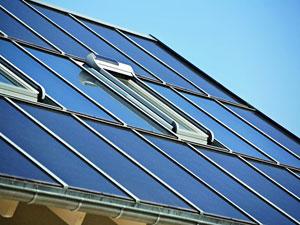Can solar power Tanzania?
(Image by Wikimedia user Roto Frank AG (cc:by-sa)
This story was originally reported by PRI’s The World. For more, listen to the audio above.
For many Tanzanians, kerosene and candles are some of the only sources of light at night. Electricity is sparse throughout the country. Stephen Chimallo, who grew up in a small village in Tanzania, describes it: “Imagine at night without light. Imagine if you want to study at home and it takes you like ages to find where the matchbox is because there is no light.”
Kerosene, however, is both dirty and expensive. It spews carbon into the atmosphere and can clog children’s lungs with smoke. The open fires from lamps and candles are also dangerous. Mason Huffine, of the nonprofit SolarAid, told PRI’s The World about a recent tragedy in a Tanzanian school in the remote village of Idodi:
One of their brighter students was studying in the dormitory after midnight. As near as we can tell, she fell asleep with her candle in the bed. The mattresses are these super cheap foam mattresses and they ignite up and there’s a wood ceiling in there and in literally 15 minutes, the entire place was engulfed in flames and 12 students perished.
SolarAid is now trying to offer a cleaner, cheaper and safer alternative to kerosene and candles in solar power. The company is setting up solar-powered electrical systems in schools and health centers across Tanzania. In Idodi, where kerosene lamps are now banned, students say they use solar lamps to study at all hours. One student, Oliver Mwenda, insists that the lamps have improved her grades. Mwenda told The World:
Especially mathematic subject. I was poor in performance because the time was not enough for studying mathematics in the class but when the light comes, I was spend most of the time in the dormitory for mathematics.
In health centers, the solar lamps may be saving lives. The health center in Idodi once had a solar powered system that broke, and no one knew how to fix it. Tarchisya Kipangula, who’s worked at the clinic for four years, said that she and her coworkers resorted to using flashlights on night shifts. Kipangula said, “Labor, they always come during the night for maternity so this also is difficult.
Kipangula uses her cell phone, which comes equipped with a flashlight, to find light. She pops the cell phone in her mouth to direct the flashlight. ” It’s very dangerous, even for contamination,” Kipangula points out, because she sometimes has to use her hands, which have been contaminated by patients, and the put the cell phone in her mouth.
“If there is light, you go on with the procedure without touching anywhere,” Kipangula told The World. “After this, you wash your hands; you move out your gloves no problem. But with the darker, it’s a very terrible situation.”
A solar power system would people’s outlooks and their lives, according to SolarAid’s Chimallo: “When you see the light, it’s like oh my God, this is the world now. This is what’s supposed to be there. This is what we really need.”
PRI’s “The World” is a one-hour, weekday radio news magazine offering a mix of news, features, interviews, and music from around the globe. “The World” is a co-production of the BBC World Service, PRI and WGBH Boston. More “The World.”
